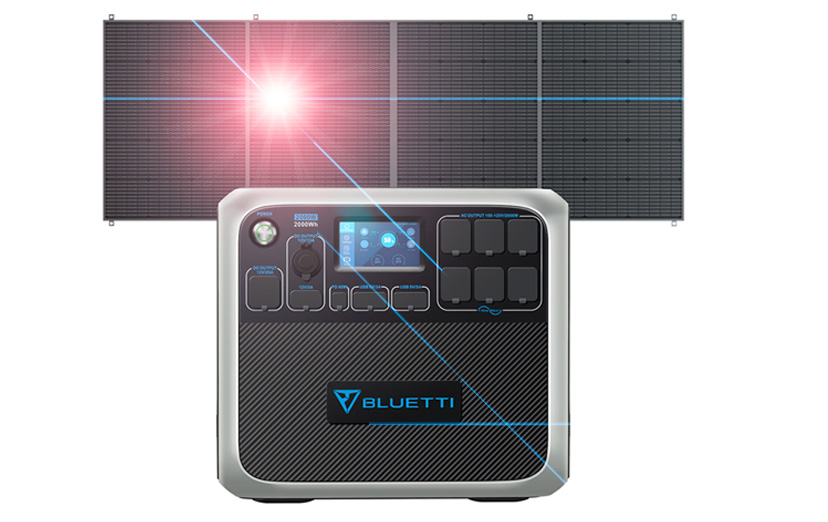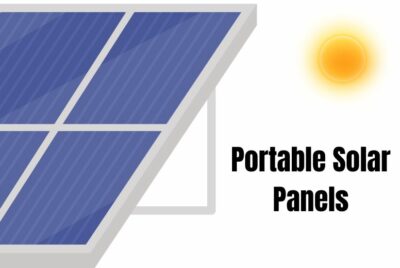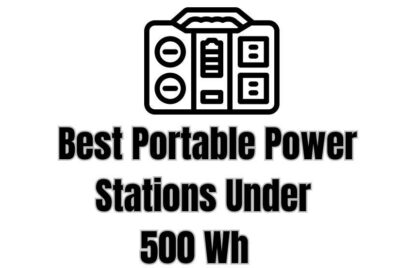What Is a Solar Generator?
I may earn a commission for purchases made through my links. It helps me run this site. Check out my disclosure for more details.
Picture this: a compact, portable power station that harnesses the energy of the sun to provide electricity wherever you go. Sounds incredible, doesn’t it? Well, that’s exactly what a solar generator is all about. In this post, we’ll look at the solar generator landscape, and look at how you use them in the real world, and whether they are a benefit or a hindrance.
Understanding Solar Generators
Before we dive into the benefits, let’s first understand what exactly a solar generator is. A solar generator is a device that converts sunlight into electrical energy, storing it in a battery for later use. It consists of three main components: solar panels, a charge controller, and an inverter.
The solar panels absorb sunlight and then convert it over to usable DC (direct current) electricity, which is then regulated by the charge controller to prevent overcharging. The inverter, on the other hand, converts DC electricity into AC (alternating current), which is the type of electricity commonly used in our homes and businesses.
Unleashing the Power of the Sun: Transforming Energy with Solar Generators
Solar generators offer a plethora of advantages, making them an appealing choice for various situations. Firstly, they are an environmentally friendly power source. By harnessing the sun’s energy, solar generators produce clean, renewable electricity without emitting harmful pollutants or greenhouse gases. This contributes to a healthier planet and reduces our carbon footprint.
One of the most significant benefits of solar generators is their reliance on renewable energy. Unlike traditional fuel-powered generators, solar generators don’t require constant refueling. As long as the sun is shining, you have a constant source of energy. This makes solar generators ideal for off-grid living, remote locations, and situations where power outages are frequent.
Another advantage of solar generators is their quiet and portable nature. Unlike conventional generators that produce noise and fumes, solar generators operate silently and emit zero emissions. Their compact design means they are easy to take on the move, making them perfect for camping trips and outdoor activities.
You can simply pack up your solar generator, along with its lightweight solar panels, and enjoy a peaceful getaway in nature without disturbing the tranquility or relying on noisy generators.
Solar generators also offer independence from the grid. With a solar generator, you are no longer at the mercy of power outages or fluctuating electricity prices. You have the power to generate your own electricity, giving you peace of mind and control over your energy needs.
While the upfront cost of a solar generator may be higher compared to traditional generators, they are more cost-effective over the long term. Once you make the initial investment, the sun’s energy is free, and you can enjoy substantial savings on your electricity bills over time. Additionally, solar generators require minimal maintenance, reducing ongoing costs.
What Can You Use Solar Generators For?
The versatility of solar generators makes them suitable for a wide range of applications. Let’s explore some of them now.
- Camping and Outdoor Activities: Whether you’re camping, RVing, or hosting a backyard party, solar generators can provide a reliable source of power for lighting, charging devices, running small appliances, and even powering portable refrigerators.
- Emergency Preparedness: During natural disasters or emergencies, when the grid is down, solar generators can be a lifesaver. They can power essential devices like lights, radios, and medical equipment, ensuring you stay connected and prepared for any situation.
- Power Backup for Homes and Businesses: Solar generators can serve as a backup power source for your home or small business. They can provide electricity during power outages, allowing you to run essential appliances like refrigerators, communication devices, and medical equipment.
- Remote Locations and Off-Grid Living: If you live or work in a remote area without access to traditional power sources, solar generators offer an independent and sustainable solution. They can provide reliable electricity for daily needs, without the need for extensive wiring or expensive infrastructure. Perfect for off-grid living.
How to Choose the Right Solar Generator
When selecting a solar generator, it’s essential to consider your specific power needs and preferences. Here are some factors to keep in mind.
- Assessing Power Needs: Determine the wattage and capacity requirements of the devices you plan to power. This will help you choose a solar generator with the appropriate power output and storage capacity.
- Battery Capacity: Consider the size of the battery the solar generator has. This dictates how long your devices can be run for. Opt for a generator with sufficient capacity to meet your usage requirements.
- Solar Panel Compatibility and Charging Time: Ensure that the solar generator is compatible with the solar panels you plan to use. Also, consider the charging time required to replenish the battery using solar energy.
- Additional Features and Accessories: Some solar generators come with extra features like USB ports, AC outlets, LED displays, apps, and built-in inverters. Assess these features to ensure they align with your specific needs.
- Budget Considerations: Set a budget and explore solar generators within that price range. Remember to consider the long-term cost savings of solar generators when comparing prices.
How To Get The Most From Your Solar Generator
To optimize the performance and longevity of your solar generator, consider the following tips.
- Optimal Placement of Solar Panels: Position your solar panels to receive maximum sunlight exposure throughout the day. Angle them towards the sun and keep them clear of shading objects.
- Monitoring and Managing Power Consumption: Consider your power consumption and prioritize essential devices. Turn off or unplug devices when not in use to conserve energy. Some power stations have apps or LCD screens to monitor stats.
- Proper Battery Maintenance: Most batteries have over and discharging protection. Follow the manufacturer’s guidelines for any additional battery maintenance, such as excessive overcharging or deep discharging. Regularly clean and inspect the solar panels for optimal efficiency.
- Weather Considerations: When using solar generators, it’s important to consider weather conditions. While solar generators can still generate power on cloudy or rainy days, their efficiency may be reduced. If you anticipate extended periods of inclement weather, ensure you have backup power options or additional battery capacity to meet your energy needs.
- Backup Power Options: In situations where solar energy may not be sufficient, such as during prolonged cloudy periods, it’s beneficial to have alternative power sources as a backup. This can include a secondary battery bank, a generator, or access to grid power if available.
By implementing these tips, you can maximize the efficiency and effectiveness of your solar generator, ensuring a reliable and sustainable power supply.
Common Misconceptions about Solar Generators
There are a few misconceptions surrounding solar generators that are important to address. A solar generator is unlike any other kind of generator you may have used before.
- Solar generators are not the same as traditional generators – Unlike traditional generators that run on fuel, solar generators rely solely on the energy from the sun. They do not emit harmful emissions or require constant refueling.
- Limitations and considerations for cloudy or rainy days – While solar generators can still generate power in less-than-optimal weather conditions, their output may be reduced. It’s important to consider the weather forecast and have backup power options available when needed.
- Understanding power output and capacity – Solar generators have specific power output and battery capacity limits. It’s crucial to match your power needs to the capabilities of the solar generator you choose, ensuring it can meet your requirements.
Conclusion
Solar generators offer a clean, renewable, and portable power solution for various applications. They provide independence from the grid, cost savings in the long run, and are environmentally friendly. By understanding your power needs, choosing the right solar generator, and implementing efficient usage practices, you can harness the power of the sun to meet your energy requirements.
Embrace the benefits of solar generators and join the renewable energy revolution. Enjoy the freedom of portable, sustainable power wherever your adventures take you!
FAQs (Frequently Asked Questions)
- Can solar generators power large appliances like refrigerators? Solar generators have different power output capacities. While some can power small refrigerators, larger appliances may require more robust solar generator systems.
- Can I use solar generators in areas with limited sunlight? Solar generators can still generate power in areas with limited sunlight. However, their efficiency may be reduced. It’s important to assess the local climate and consider backup power options for prolonged cloudy periods.
- Are solar generators noisy? Solar generators operate silently since they do not have an internal combustion engine like traditional generators. They provide a quiet power solution for various applications.
- How long do solar generators last? The lifespan of a solar generator depends on the quality of its components and how well it’s maintained. With proper care, a solar generator can last for several years.
- Can I expand the capacity of my solar generator? Some solar generators allow for expansion, such as adding additional battery capacity or connecting multiple units in parallel. Check the specifications and compatibility of your specific solar generator model.
Remember, embracing solar generators not only benefits you but also contributes to a sustainable and greener future. Enjoy the power of the sun while reducing your carbon footprint and gaining energy independence.




